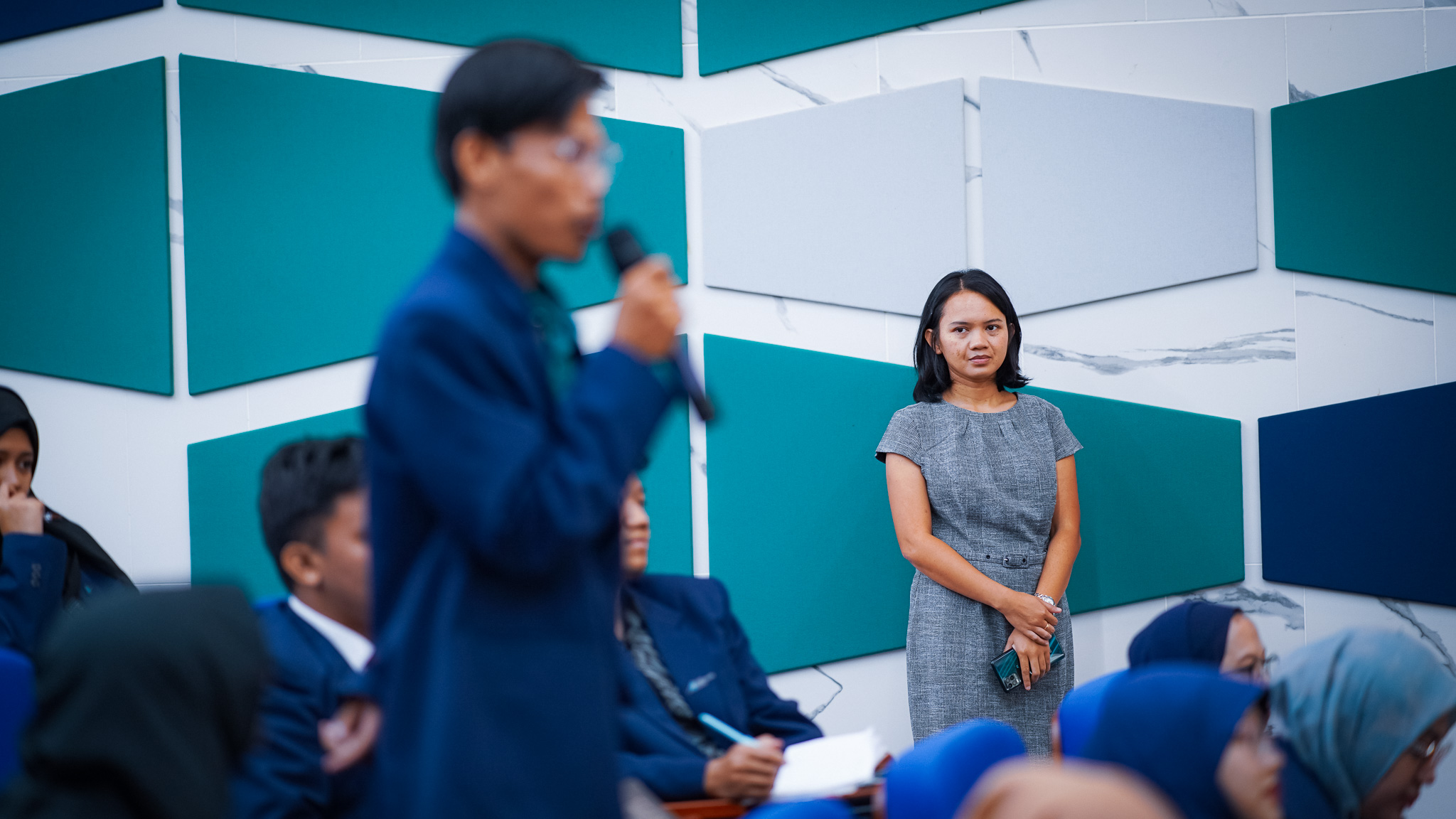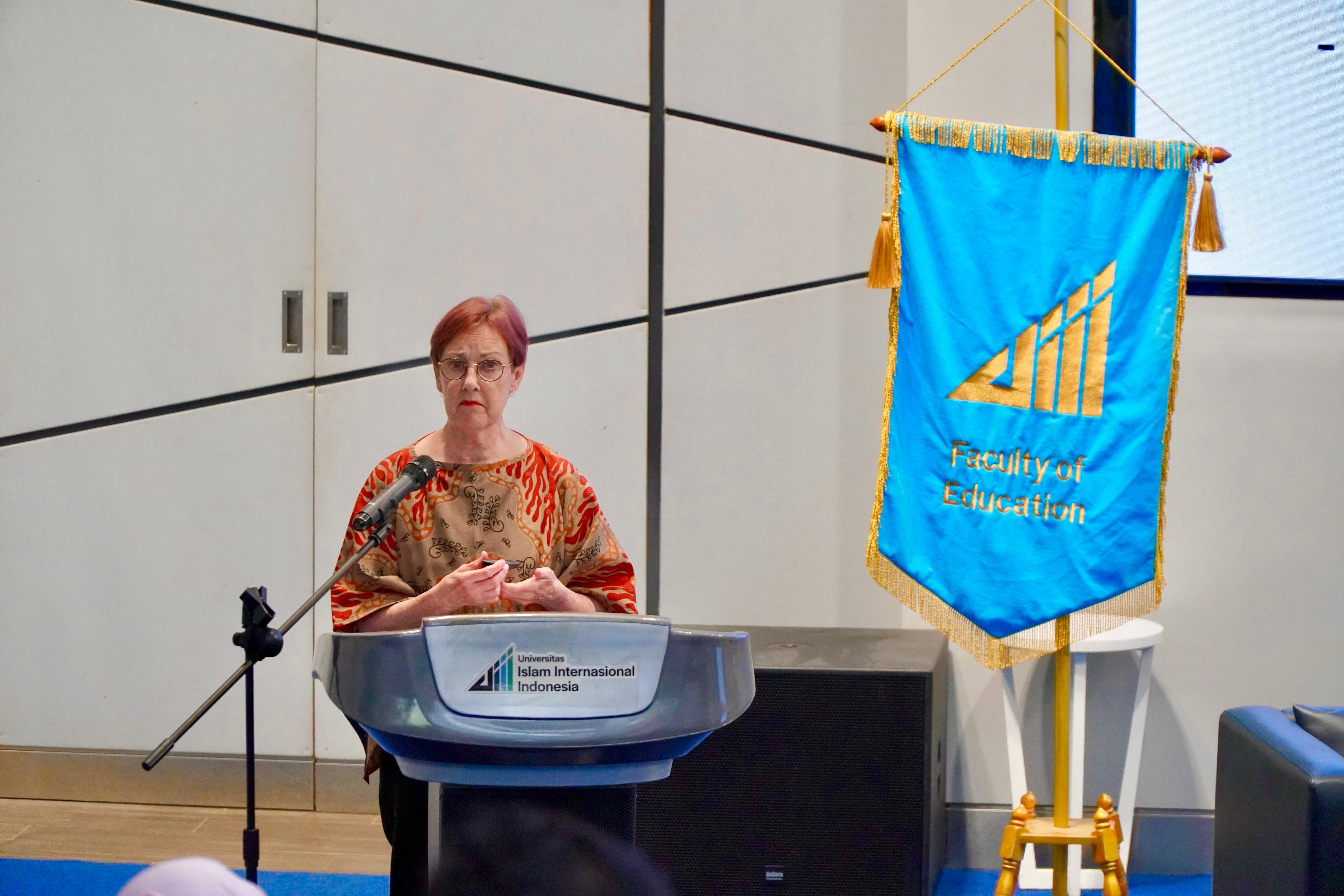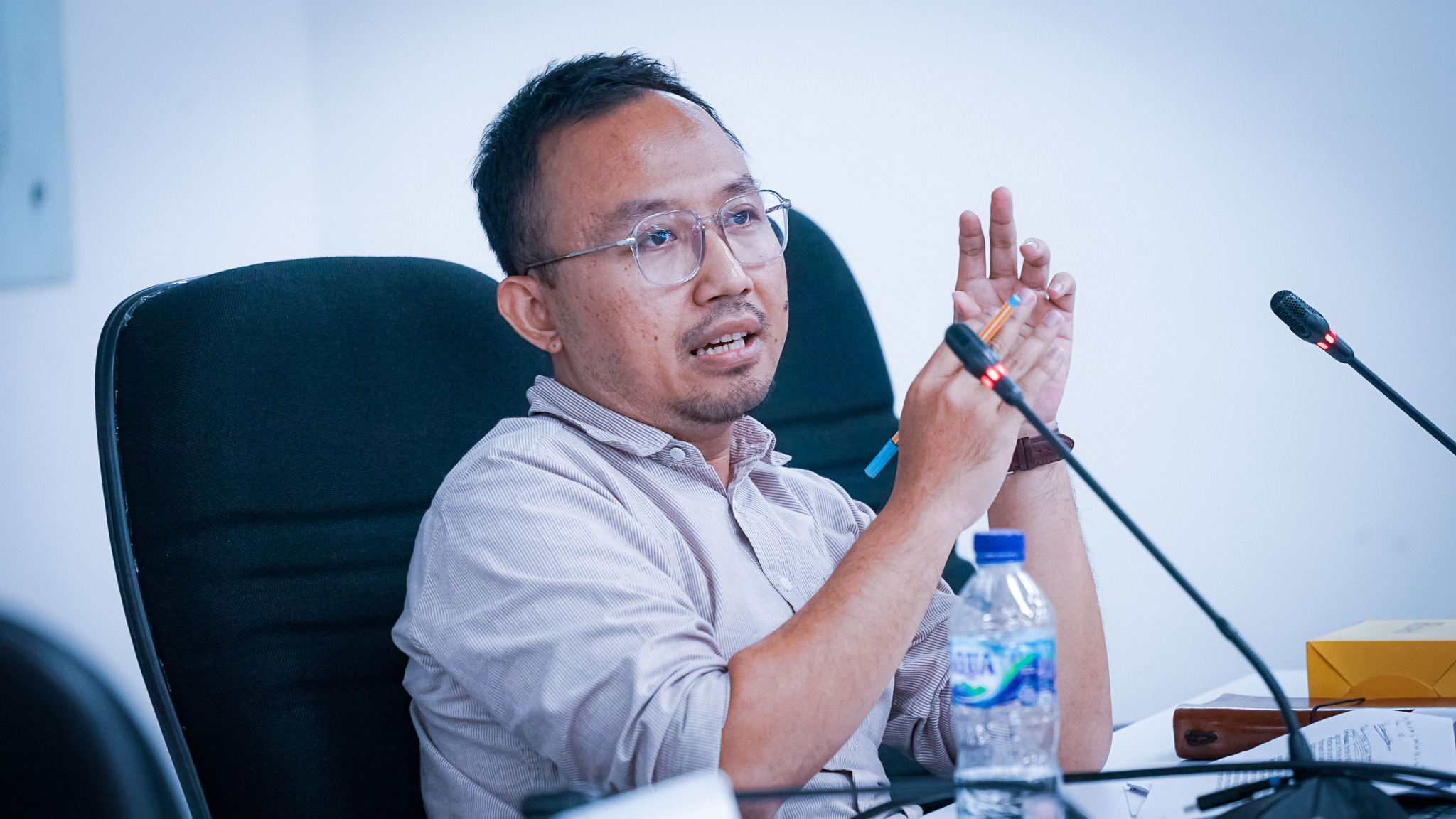A Deeper Understanding of Critical Feminist Methodology
October 14, 2024Contributor: Supriyono | Editor: Dadi Darmadi | Photo: M. Sufyan As-Tsauri
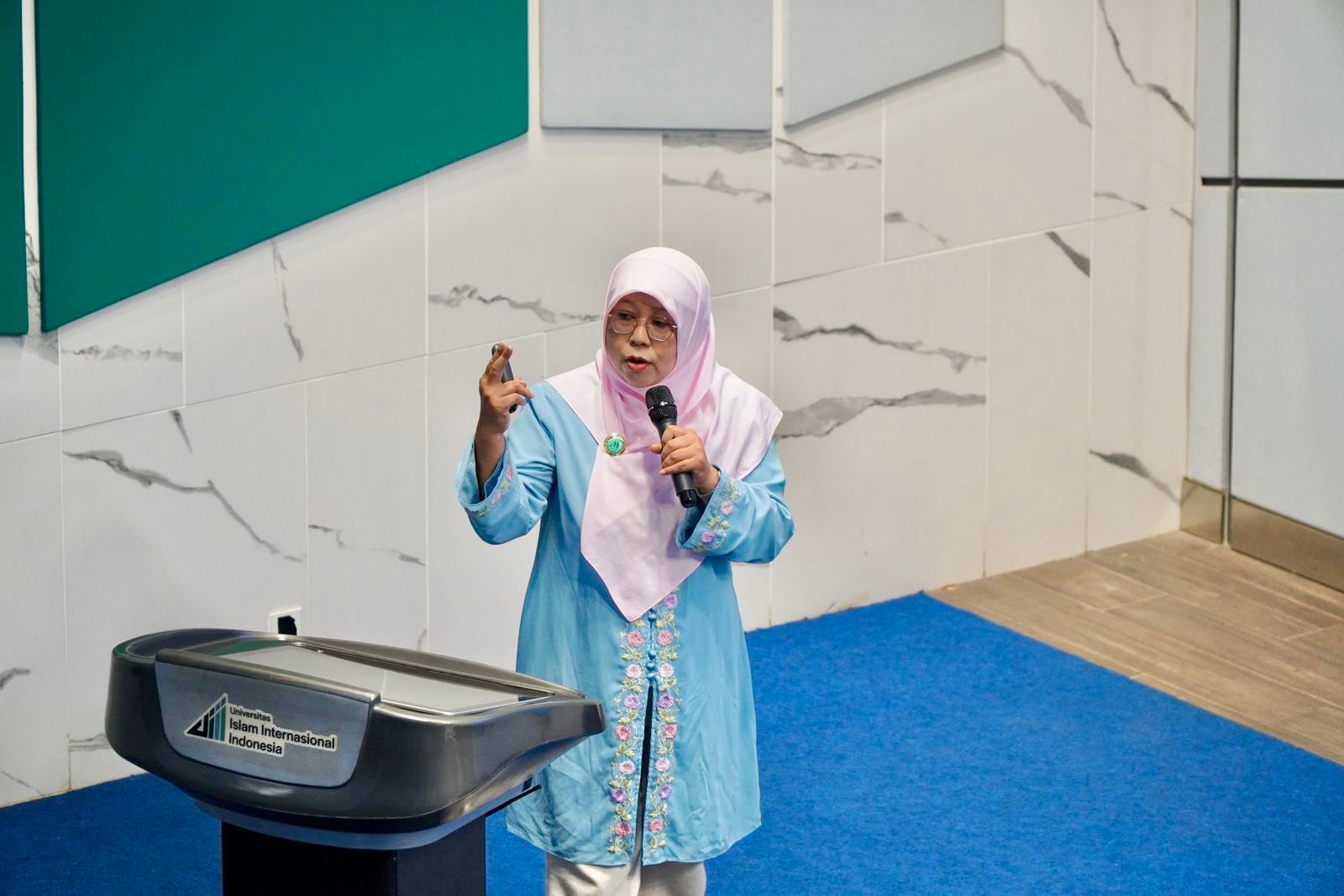
Depok, October 3, 2024 — The UIII Faculty of Education held a thought-provoking public lecture on Thursday, October 3, featuring Prof. Nina Nurmila, Dean of the Faculty of Education. Speaking to a packed audience in Theater Hall Faculty A, Prof. Nurmila explored the intricacies of critical feminist methodology, a vital yet often debated aspect of modern research.
Prof. Nina Nurmila is a distinguished Professor of Gender and Islamic Studies. She earned her MA from Murdoch University in 1997 and a PhD from the University of Melbourne in 2007. Her academic journey includes prestigious roles such as a Fulbright Visiting Researcher at Temple University in Philadelphia in 2000, an Endeavour Postdoctoral Research Fellow at the University of Technology, Sydney, in 2008, and a Fulbright Visiting Professor of Islamic Studies at the University of Redlands, California, from 2008 to 2009.
Prof. Nurmila began by addressing ongoing debates from the 1990s over whether feminist methodology stands as a distinct research paradigm and methodology. She pointed out that opponents have argued against its independence, suggesting that feminist methodologies lack a unique perspective and draw heavily from established paradigms like Marxism and critical theory. Others contend that feminist approaches lack coherence due to the diverse perspectives within feminism itself.
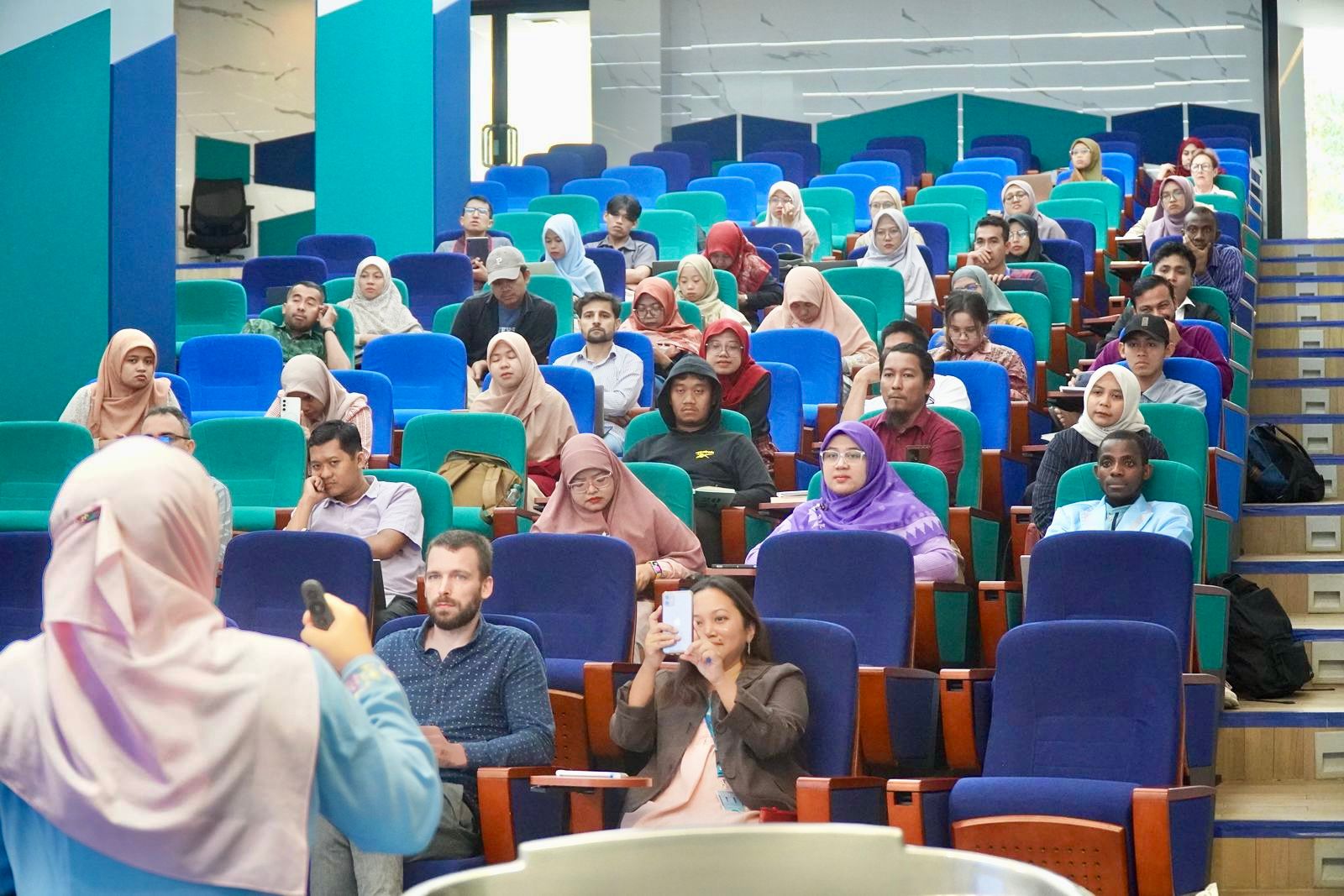
However, Prof. Nurmila presented a compelling case for recognizing feminist methodology as unique, emphasizing its intentional rejection of male-dominated research paradigms. “Feminist researchers prioritize women’s perspectives and their societal positions, presenting a contrast to traditional methodologies focused primarily on male experiences,” she explained. She further noted that feminist research introduces a unique lens for understanding the world, often centered around the impact of patriarchy.
The criteria that define feminist methodology, as presented by Prof. Nurmila, include examining issues through a female prism, in which women are both the focus and interpreters of inquiry. Feminist methodology also encourages “consciousness raising,” a quality described as the advantage that female researchers have in understanding women’s experiences from within an “oppressed group.” She added that this “double vision” enables feminist researchers to empathize deeply and interpret their findings more accurately.
Highlighting her own work, Prof. Nurmila referenced several examples of feminist research, including her publications like “Women, Islam, and Everyday Life” (Routledge, 2009) and an article examining husband-wife dynamics (Al-Jamia’ah: Journal of Islamic Studies, 2013). She reflected on how feminist methodology shapes her qualitative research, occasionally integrating quantitative data while retaining a feminist analytical lens.
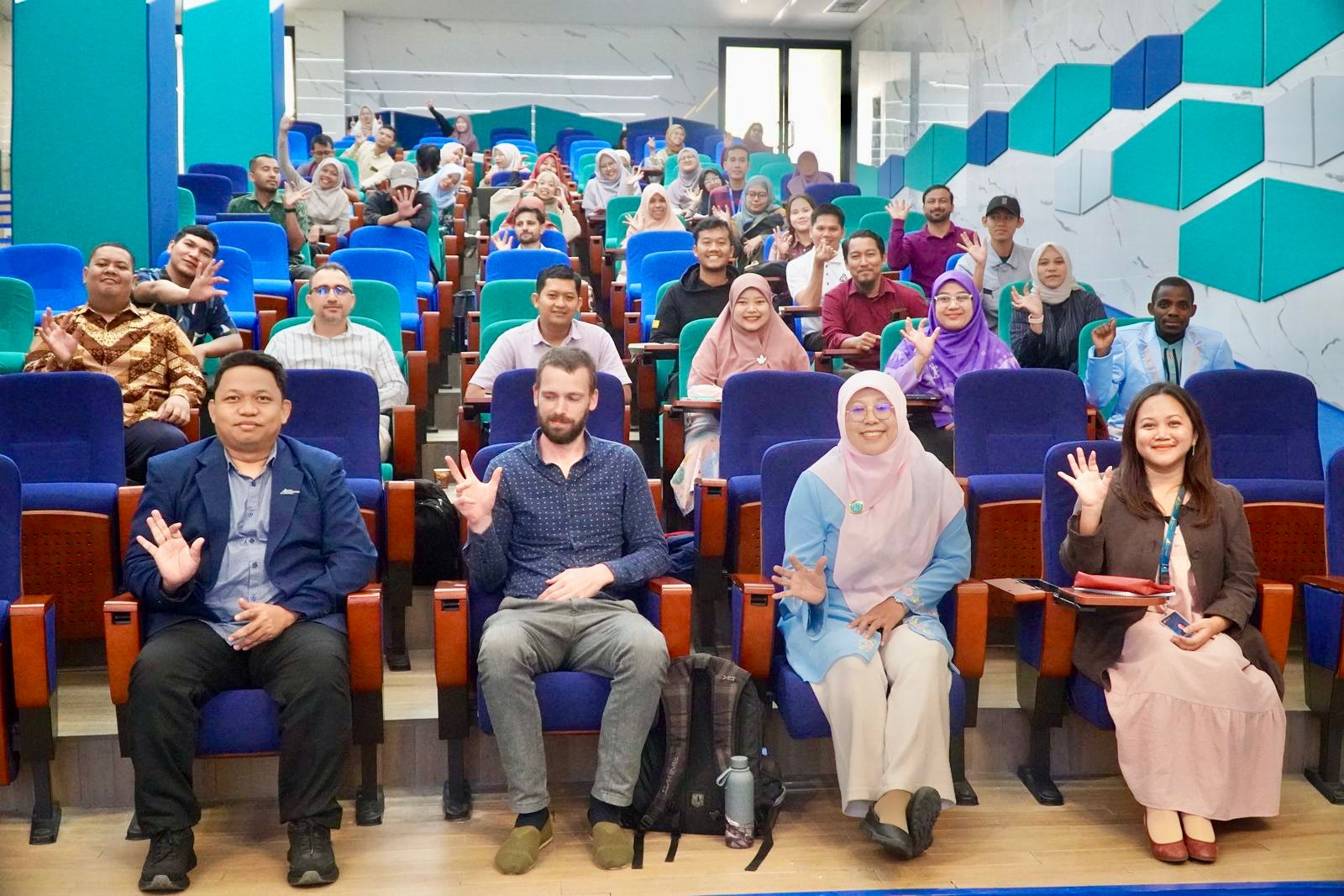
In her conclusion, Prof. Nurmila discussed how feminist methodologies transform traditional academic language structures, shifting from objective, passive language to more subjective, active voice. She also emphasized the importance of non-gender-biased language, advocating for inclusive terms such as “human power” rather than “manpower”.
Prof. Nurmila’s lecture left the audience with a deeper understanding of critical feminist methodology and its transformative impact on research. Through her insights, she highlighted the importance of inclusivity and empowerment within academia, calling on future researchers to consider feminist perspectives in fostering societal progress. The event exemplified UIII’s commitment to fostering an environment open to new perspectives in research, welcoming research paradigms, methodologies, and methods that advocate for societal change and scholarly diversity.
- Grit, Innovation, and Adaptation: Key Themes in FoE’s 3rd Graduate Forum for Education Future
- Student-Led Research Community Series Kick Off with Academic Publishing Session
- Advancing Institutional Governance through Risk Management Training
- A Night of Unity: International Iftar Brings Students Together in Celebration
- Vice Minister Joins Iftar with UIII International Students, Hearing Their Stories
- FisFastFest Showcases ‘TransformMe’ Spirit with Intense Quiz Competition
- Ramadan Unites Us: UIII Hosts Iftar Gathering to Strengthen Bonds
- It’s Time for Africa! UIII Aims to Expand Outreach in African Continent
- Future Innovators Gather at UIII for 1000x Challenge Mentoring & Briefing
- UIII and Al-Azhar Strengthen Ties for the Advancement of Islamic Civilization
